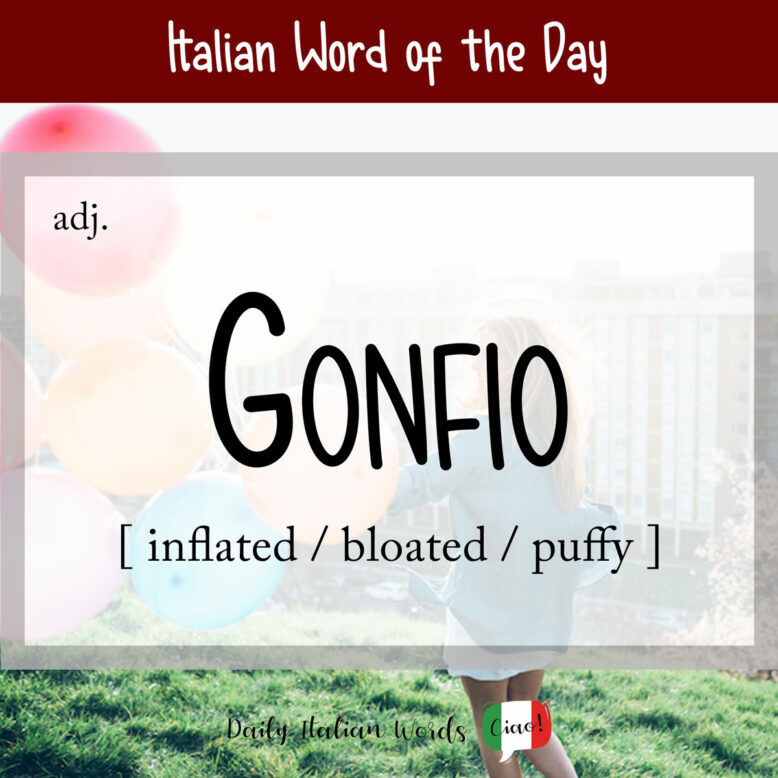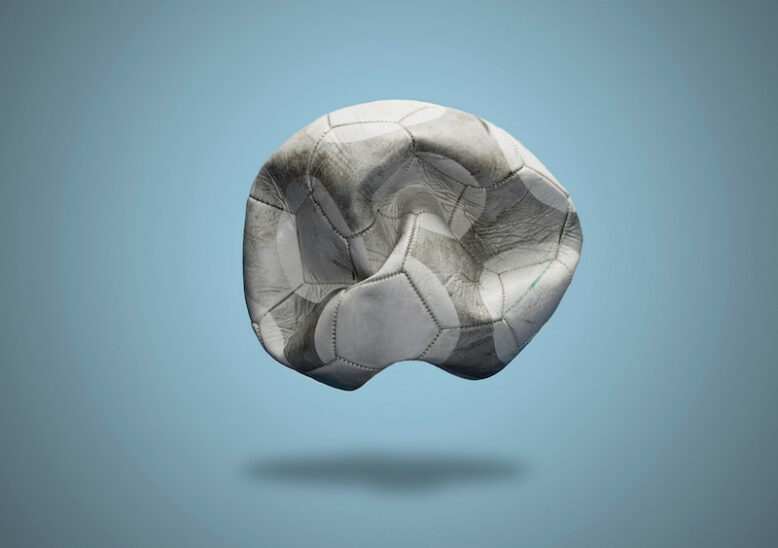When describing something that has exceeded its normal dimensions, Italians often use the adjective gonfio (feminine: gonfia, plural: gonfi / gonfie).
gonfio

First and foremost, you can use it to describe something filled with air, in which case we’d generally use the adjective inflated in English. For example, an inflated balloon would be un palloncino gonfio whereas an inflated tyre would be uno pneumatico gonfio.
Il pallone è gonfio? Bene, allora giochiamo!
Is the ball inflated? Good, then let’s play!

If you’ve indulged in a particularly hearty meal and find yourself feeling full, with either air or food, gonfio is the perfect word to describe the sensation. In this case, you will often hear the expression sentirsi gonfio (to feel bloated).
Ah, mamma mia, come mi sento gonfio. Ho mangiato davvero troppo!
Oh boy, I feel so bloated. I ate way too much!

Gonfio is also used to describe body parts that appear swollen or puffy, such as gli occhi gonfi (puffy eyes) or una caviglia gonfia (a swollen ankle).
Hai il piede gonfio. Ti fa male?
Your foot is swollen. Does it hurt?
A less common expression is gonfio di… (full of… / overcome with…), which is used to describe strong emotional states. It often appears in the company of nouns such as superbia (pride), gioia (joy), collera (anger), presunzione (arrogance), ira (rage) or dolore (pain) to name a few.
Luigi aveva il cuore gonfio di gioia perché era riuscito a coronare il suo sogno.
Luigi’s heart was full of joy because he had achieved his dream.
Some other things that can be considered gonfio include overflowing rivers (fiumi gonfi), full wallet (portafoglio gonfio), bulging bags (borse gonfie), puffy hair (capelli gonfi) and even pregnant women!
A common idiom in Italian that features gonfio is andare a gonfie vele, which literally means “to go with full sails“. In English, the equivalent idiom would be “to go swimmingly“.
Il lavoro sta andando a gonfie vele.
The job is going swimmingly.
But what about the opposite of gonfio? You can create this adjective simply by adding an s- to the beginning of the word: sgonfio. As you can imagine, it means deflated, flat, or without swelling.
Il palloncino è tutto sgonfio, buttiamolo via.
The balloon is completely deflated, let’s throw it away.

Heather Broster is a graduate with honours in linguistics from the University of Western Ontario. She is an aspiring polyglot, proficient in English and Italian, as well as Japanese, Welsh, and French to varying degrees of fluency. Originally from Toronto, Heather has resided in various countries, notably Italy for a period of six years. Her primary focus lies in the fields of language acquisition, education, and bilingual instruction.


